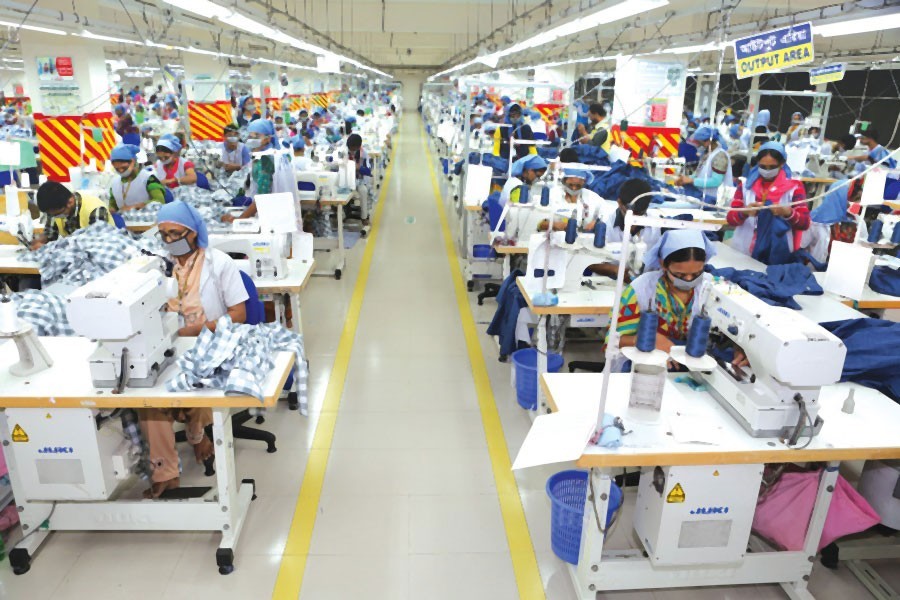
Published :
Updated :

Much as one may have longed for obtaining a comprehensive picture of the readymade garments (RMG) sector, it proved a daunting task. But now that the think-tank, Centre for Policy Dialogue (CPD), has carried out a survey on 2,123 workers in 252 garments factories, a broad idea of how the export industry is faring is available. Retrofitting and putting in place safety measures following the Rana Plaza tragedy have certainly transformed many of the garments units for the better so much so that Bangladesh today boasts the largest number of green factories in the world with 67 eco-friendly buildings. Further good news is that this number may rise up to about 300 soon. Certainly this is quite a rosy picture and should be celebrated as well. The transformation has been fast and pleasantly surprising.
However, the proportion of such eco-friendly green factories is still a small fraction of the total. There are about 4,000 garments units in the country and the CPD survey finds that 41 per cent of those operate from rented spaces, 34 per cent from shared buildings. This is an indication that such units have a long way to go before they are properly relocated with all the required facilities and safety measures. But buildings alone do not upgrade a factory to the desired levels unless the hands behind the machines are turned qualified and efficient enough through related education and training. The fact that local employees are engaged mostly in the lower level jobs and they are unfit for top jobs takes away some of the gloss from the achievements in eco-friendly status. In production planning, more than 37 per cent are foreigners. Introduction of advanced technology has already exposed the weakness of cheap labour. Women workers have become dispensable as a result, giving a slight rise to the proportion of male workers in the sector. It is not alarming yet but soon it will be.
A remarkable change has taken place in the area of management with the family-based ownership turning towards corporatisation. This is likely to streamline the accounts better and rationalise the wage or pay package on the basis of turnover and/or profit. With the assumption of better industrial character, some of the units have already taken the shape of sister concerns. But the process has only begun and the majority of the units are far from accepting its virtue. The result is for all to see. As the survey observes, the RMG sector has failed to match the pace of economic progress in the country.
So, there is no choice but to go for revamping and making the industry as competitive as possible. The paradigm of better return on cheap labour must shift for higher competence and higher reward. To get over the gender bias, there is a need for making way for better educated girls and women. Now that female enrolment in primary and secondary schools is higher than male enrolment, this is possible if only the quality of education is raised a bit and complementary training imparted under a public-private initiative.


 For all latest news, follow The Financial Express Google News channel.
For all latest news, follow The Financial Express Google News channel.